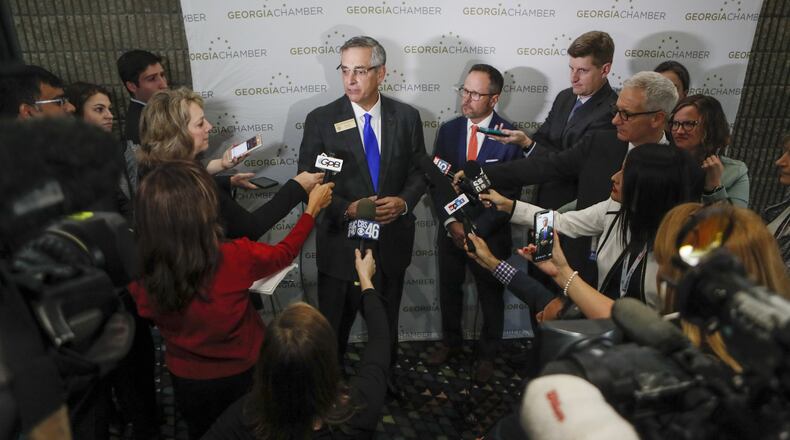Georgia Secretary of State Brad Raffensperger proposed a compromise Friday that would create partisan primaries for special elections but avoid a Republican primary clash this year between U.S. Sen. Kelly Loeffler and U.S. Rep. Doug Collins.
Raffensperger said the state should wait until next year to end “jungle primaries,” where candidates from all political parties meet in a special election.
A bill currently pending in the state House would replace free-for-all special elections with partisan primaries, raising the prospect of a Republican battle between Loeffler, who was appointed by Gov. Brian Kemp in December, and Collins, a leading defender of President Donald Trump in the U.S. House.
The legislation, House Bill 757, was sent back to its committee Thursday where it could be amended, and House Speaker David Ralston said he supports proposals to create partisan primary elections.
“We agree with Speaker Ralston that jungle elections are problematic,” Raffensperger said Friday. “That is why we propose a bipartisan commission to review and propose legislation to rationalize the special election process for future elections after 2020.”
Kemp had threatened to veto the bill, which could have divided Republicans between Loeffler and Collins, who are both running to serve the last two years of former U.S. Sen. Johnny Isakson's term after he resigned.
The bill is important to Raffensperger because it also makes clear that he has the authority to set the candidate qualifying period for the special election for U.S. Senate. Raffensperger's office has said he wants to hold candidate qualifying during the first week in March, the same time that candidates in other races will file their intention to run.
While Georgia secretaries of state have for decades determined when candidates can sign up to run for office, this bill was designed to avoid potential lawsuits about his authority to do so.
Several Democrats have also said they’re seeking the U.S. Senate seat in November’s special election, including the Rev. Raphael Warnock, educator Matt Lieberman and former federal prosecutor Ed Tarver.
About the Author
Keep Reading
The Latest
Featured



